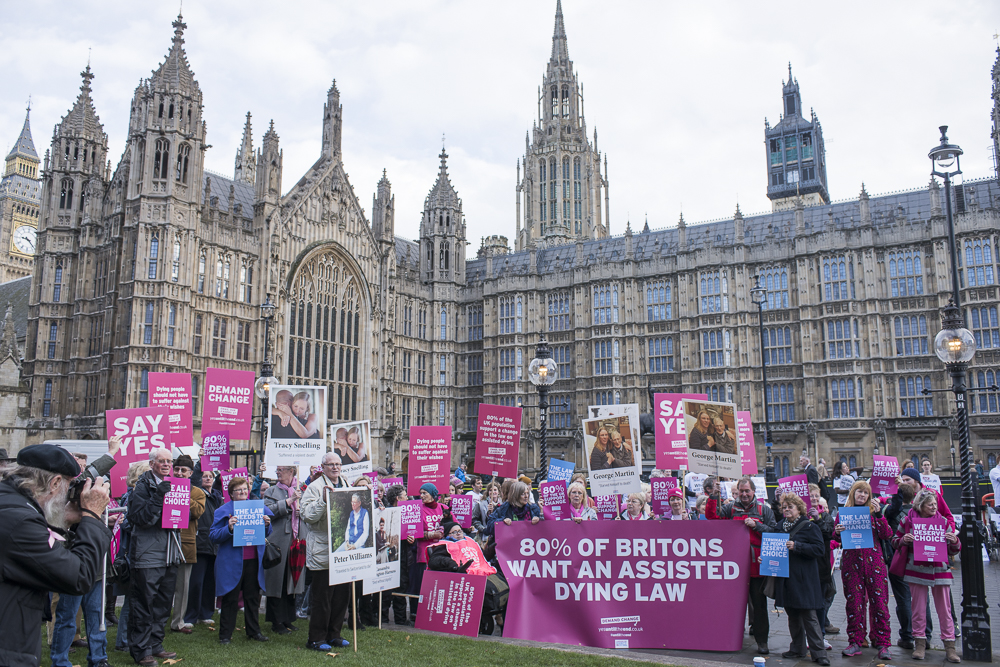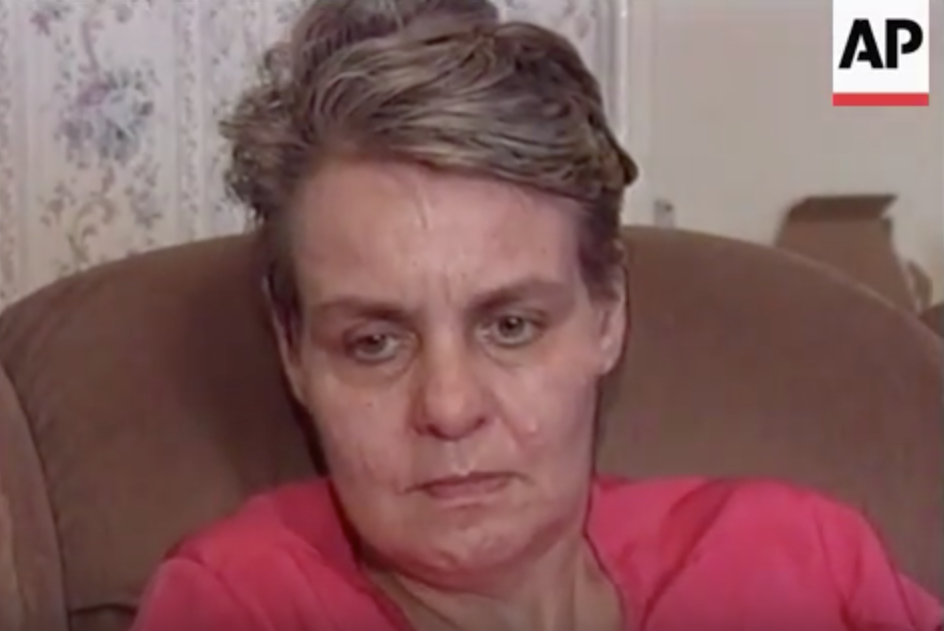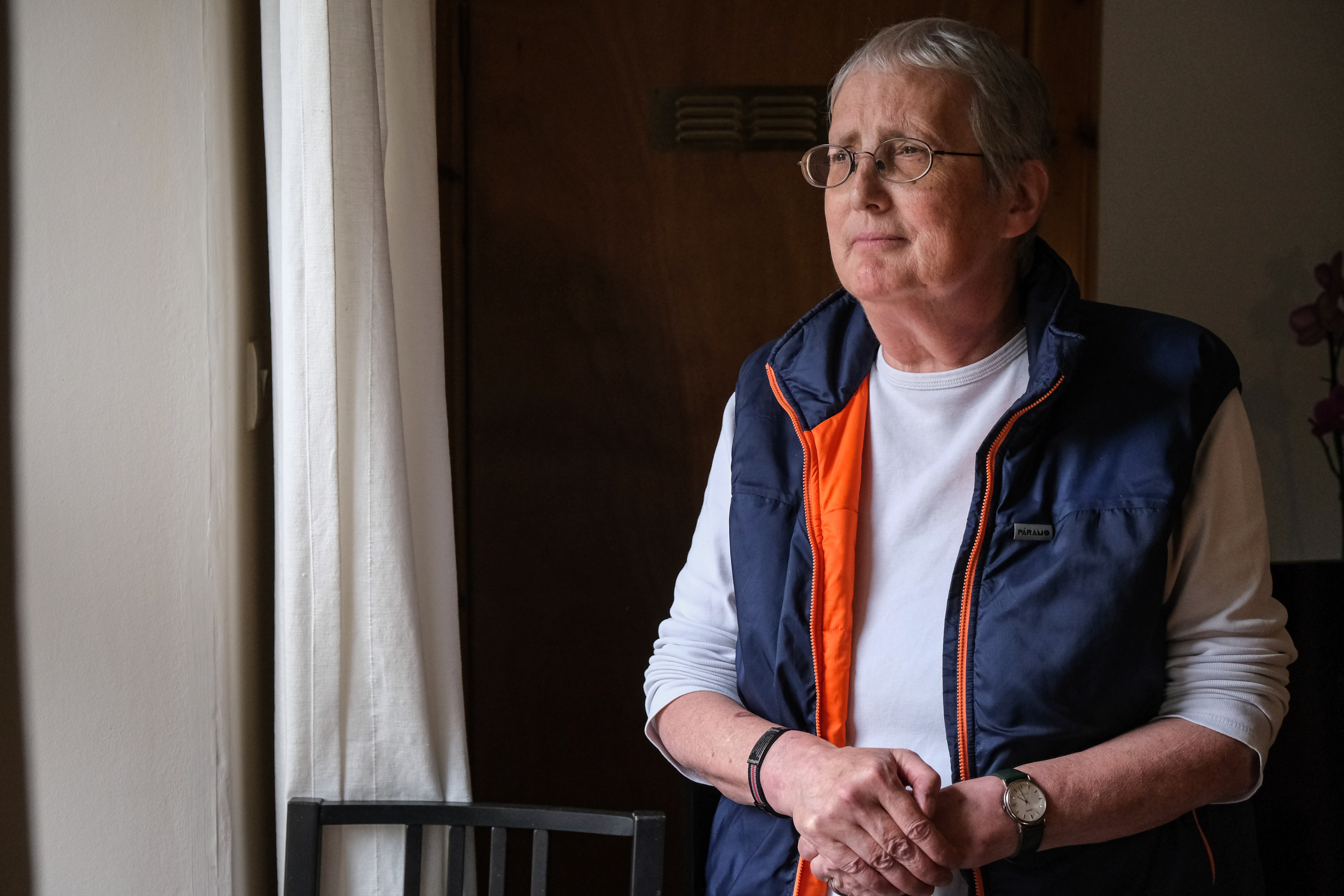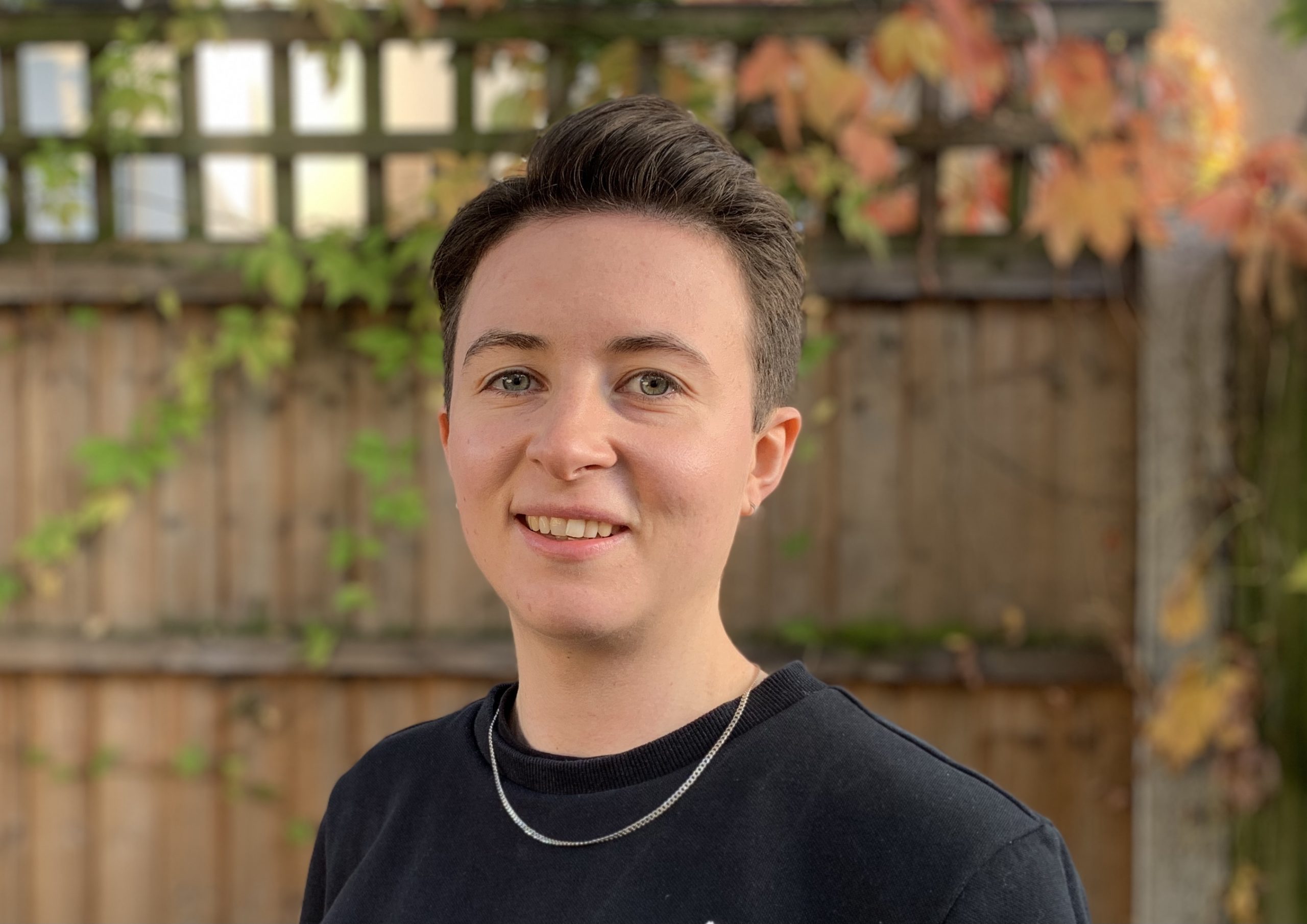A Perth woman, who campaigned for assisted dying in Scotland, has died.
Alison Napier, 61, who had cancer and penned her own obituary just weeks before her death, called for legislative changes to give terminally ill people in Scotland the choice to have an assisted death.
Napier, who was born in Ceres in Fife, was an ambassador for not-for-profit organisation Dignity in Dying Scotland, which is calling on the Scottish government to allow assisted dying.
Alison’s wife, Susan, who she married in May, told local newspaper The Courier that Napier’s death was “perhaps not as peaceful as she would have liked”.
She added: “I think she would have liked not to have to go to the hospice.
“I think she would have liked to have died peacefully at home. It was all about choice.”
Assisted Dying Is A Criminal Offence

Image Credit: Dignity in Dying / Flickr.
Campaigners across the UK are fighting for the right to choose an assisted death.
In England and Wales, it is a criminal offence under the Suicide Act 1961 for any person to assist or encourage another to take their own life. Anyone who breaks this law could face up to 14 years in prison.
In Scotland, there is no specific legislation criminalising assisted dying, but helping a person to die could lead to prosecution for murder, culpable homicide or reckless endangerment.
Dignity in Dying Scotland has paid tribute to Napier for her campaigning work.
“Alison was an inspirational woman and leaves behind a legacy of campaigning for all that she valued and knew to be right,” Ally Thomson, director of Dignity in Dying Scotland, told RightsInfo.
“Her strong belief in the right for assisted dying to be available in Scotland and all that she did to further this cause while she herself was dying gets to the heart of who she was – compassionate, progressive and motivated to make things better so no-one has to suffer.”
I think she would have liked to have died peacefully at home. It was all about choice.
Alison Napier’s wife, Susan
Thomson explained that the organisation would continue to campaign for assisted dying in Scotland.
Currently, she said, people living with terminal illness in Scotland, who want an assisted death, have to travel to the Dignitas clinic in Switzerland to achieve it.
However, Thomson stated, some individuals do not have the ability or money to do this, meaning that they take “drastic measures to end their own lives to avoid a traumatic death”.
Terminally Ill People Taking “Drastic Measures” To End Life

In 2001, Diane Pretty applied to the High Court, hoping to ensure her husband would not be prosecuted if he helped her to die. She became paralysed after being diagnosed with motor neurone disease two years earlier and wanted to avoid a protracted and painful death. Image Credit: AP / Youtube.
“These experiences could be drastically different if there was the option of a safe, peaceful assisted death available in this country,” Thomson said.
“The vast majority of the public support a change in the law on assisted dying and it is so important that this support is recognised and that the voices of dying people are heard by our decision-makers.”
In her moving third-person obituary, Napier described her childhood and her education at Aberdeen University, after which she got involved in the feminist movement and gay politics.
She went on to outline a formative trip to Nicaragua in central America and how she later got various jobs as a social worker, before meeting her wife Susan eight years ago, describing the couple as “soulmates”.
Napier said she was first successfully treated for breast cancer in 2016.
However, the cancer came back in 2019, with incurable spreads to her lung and her brain.
Napier explained that she refused treatment so that she could have a better quality of life for her remaining months.
“She politely declined all the toxic and ultimately futile treatments on offer and opted instead for quality of life with Susan for her remaining months, palliative care with lots of meals out and time with friends and family,” wrote Napier.
The right to life is protected by Article 2 of the Human Rights Convention, which states: “Everyone’s right life shall be protected by law”.
There have been numerous attempts to change the law on assisted dying, through the courts and in parliament.
In one of the most famous assisted suicide cases, that of Diane Pretty in 2002, the Court of Human Rights affirmed that “the very essence of the [Human Rights] Convention is respect for human dignity and human freedom”.
In September 2015, 330 MPs voted against plans that would have enabled some terminally ill adults in England and Wales to end their lives under medical supervision, with 118 MPs voting in favour.
Want to learn more on this topic?
- Read about Phil Newby’s assisted dying legal challenge.
- Take a look at a piece about dignity and human rights.
- View all of our resources on health and human rights.







